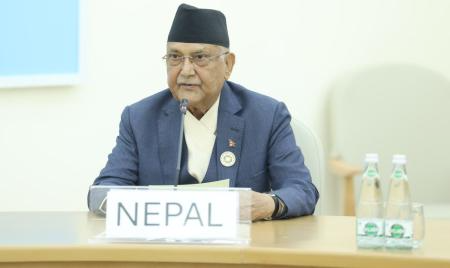
Nepal's prime minister resigned Tuesday as protests against a short-lived ban on social media grew increasingly violent and expanded into broader criticism of his government and accusations of corruption among the Himalayan country's political elite.
Demonstrations led by young people angry about the blocking of several social media sites gripped the country's capital a day earlier, and police opened fire on the crowds, killing 19 people.
The ban was lifted Tuesday, but the protests continued, with demonstrators setting fire to the homes of some of Nepal's top leaders and the parliament building. The airport in the capital of Kathmandu was shut, and army helicopters ferried some ministers to safe places.
As the protests intensified, Prime Minister Khadga Prasad Oli said he was stepping down immediately.
The demonstrations, called the protest of Gen Z, began after the government blocked platforms, including Facebook, X, and YouTube, saying the companies had failed to register and submit to government oversight.
But even after the sites came back online, the rallies continued, fueled by anger over the deaths of protesters at the hands of police and growing frustration with the political elite in the nation wedged between China and India.
In particular, many young people are angry that the children of political leaders — so-called Nepo Kids — seem to enjoy luxurious lifestyles and numerous advantages while most youth struggle to find work. With youth unemployment running at 20% last year, according to the World Bank, the government estimates that more than 2,000 young people leave the country every day to seek work in the Middle East or southeast Asia.
"I am here to protest about the massive corruption in our country," said Bishnu Thapa Chetri, a student. "The country has gotten so bad that for us youths there is no grounds for us to stay."


